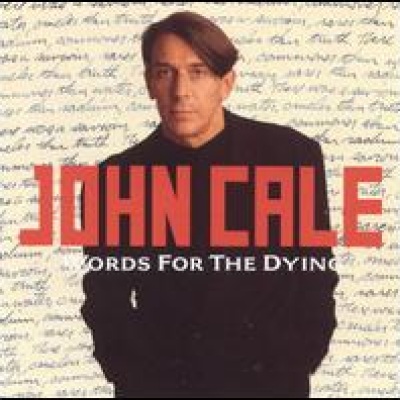
Words for the Dying
by Dave ConnollyThe central work in Words for the Dying is "The Falklands Suite," John Cale's belated attempt to canonize the Falkland Islands conflict through the poetry of Dylan Thomas. Delivered in six distinct parts (which include two musical interludes and an "Introduction" to herald the whole thing), the suite is a mix of refined classical arrangements -- courtesy of the Orchestra of Symphonic and Popular Music of Gosteleradio, USSR -- and Cale's unsuccessful attempts to translate Thomas' imagery through song. The arrangements are about as busy as an Irish butcher on a Friday, but with that comes a clarity of sound that makes the mood of the music transparent. This isn't a case of trying to prove that John Cale can write classical music -- we already know that -- just an example of using the right tools for the job. While the arrangements are often lovely and the Choir of Llandaff Cathedral Choir School is an inspired vehicle for Thomas' poetry, the words lose their power in the retelling. "Lie Still, Sleep Becalmed" is transported from paper to production safely, but it's unlikely that the poet had the Ronettes' "Be My Baby" in mind when he wrote Do Not Go Gentle into That Good Night. This is followed by the two-part "Songs Without Words," a pair of solo piano pieces that won't displace the klavierstucke of Johannes Brahms anytime soon. The album ends with "The Soul of Carmen Miranda," which features Brian Eno and Neil Catchpole. It presages the music of Wrong Way Up and, despite being an effective and moody piece of avant-garde pop, has no earthly purpose. Perhaps Cale's own unusual hairstyle (which resembles a book of carpet samples more than anything) led him to re-evaluate the impact of an actress who could dance with ten pounds of fruit on her head. John Cale deserves credit for continuing to follow his own muse, but music about the Falklands War and Carmen Miranda is obscure even by avant-garde standards.
